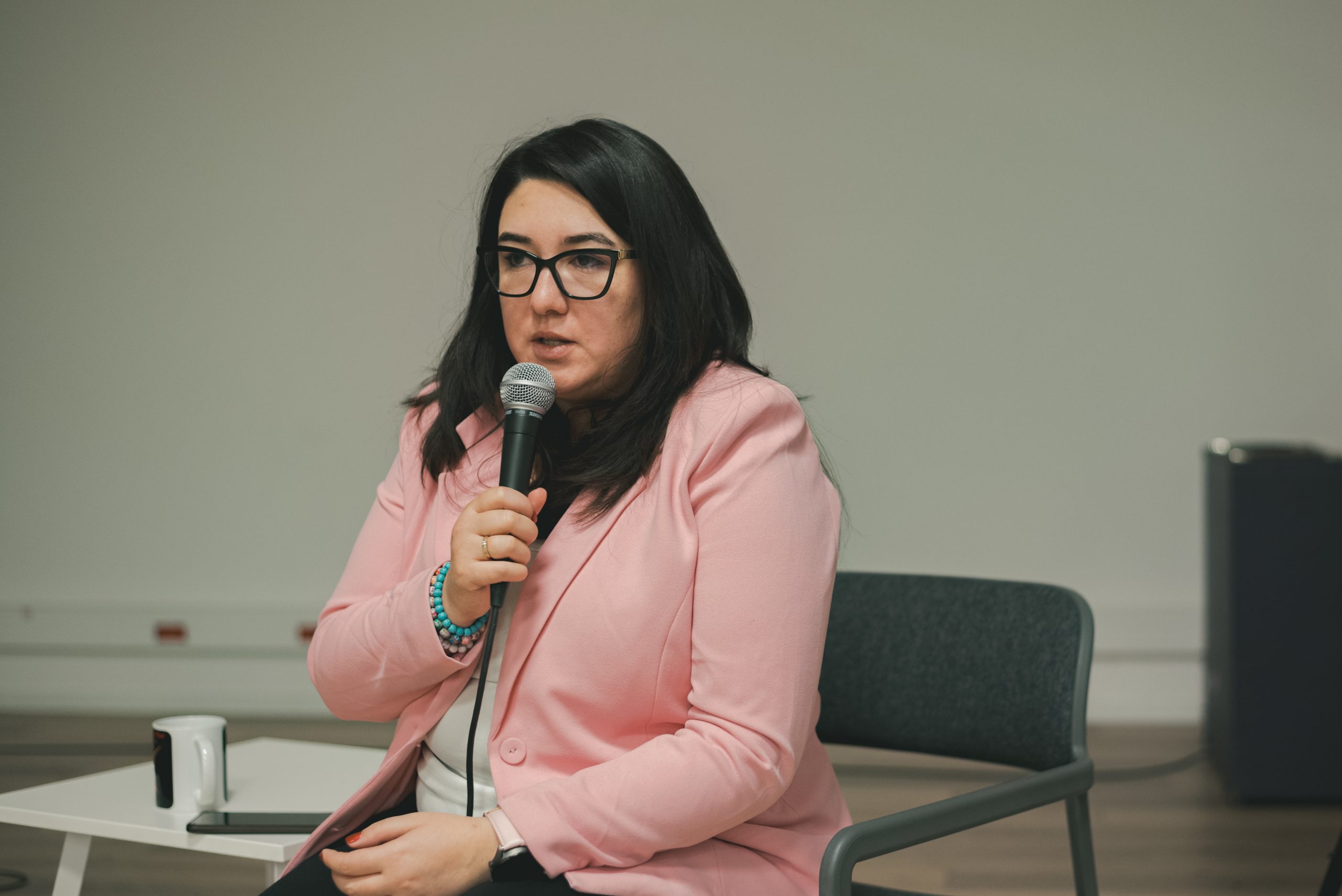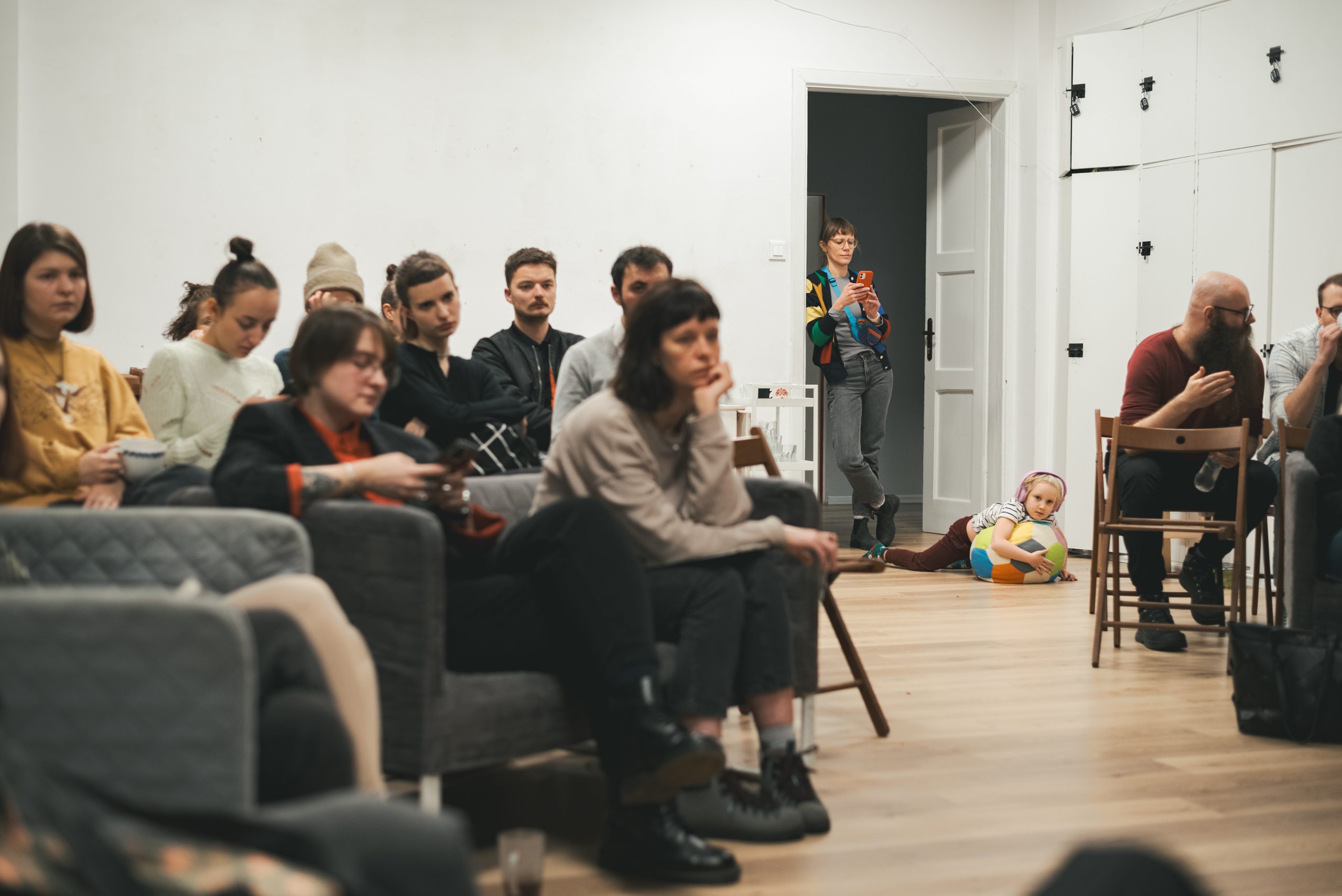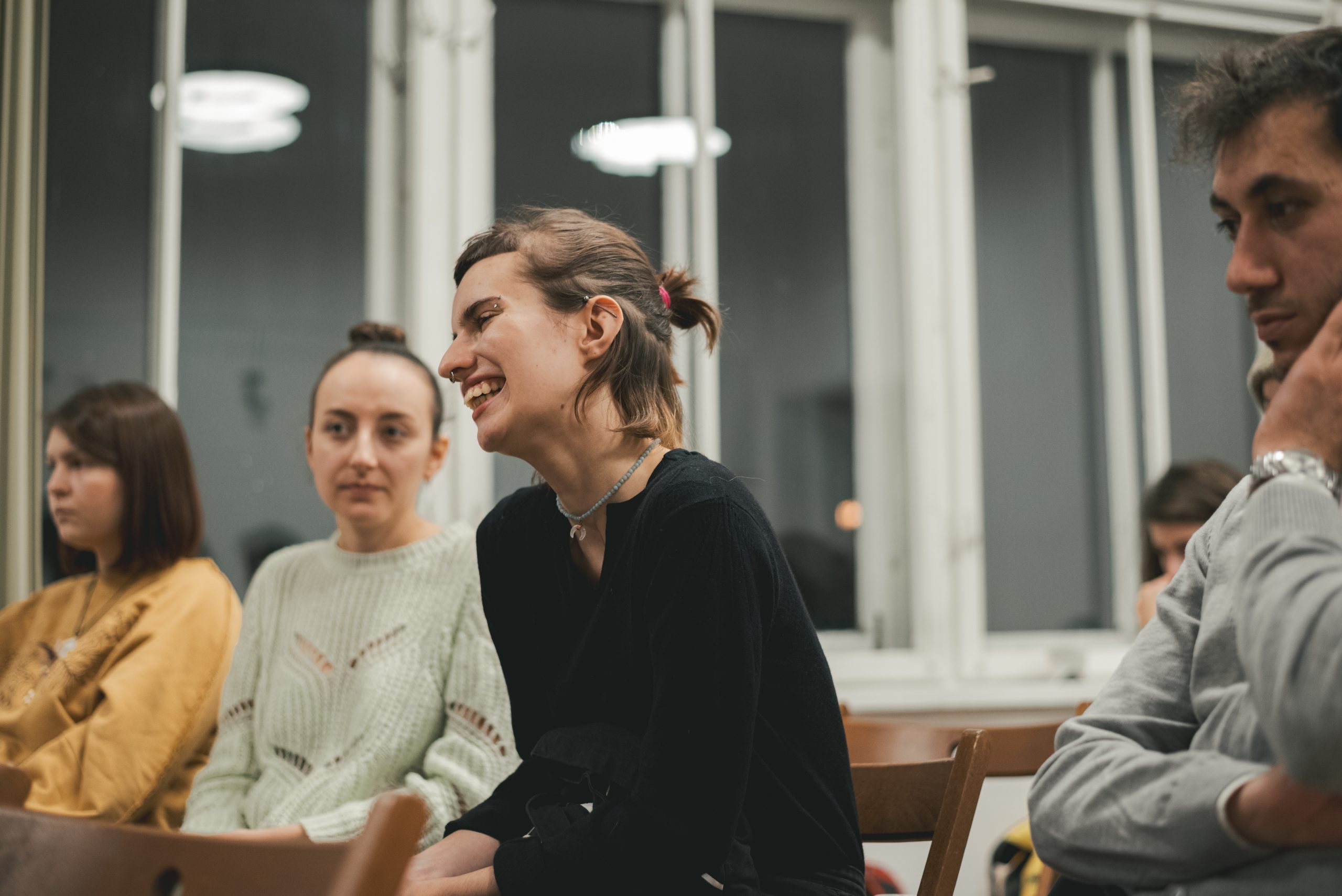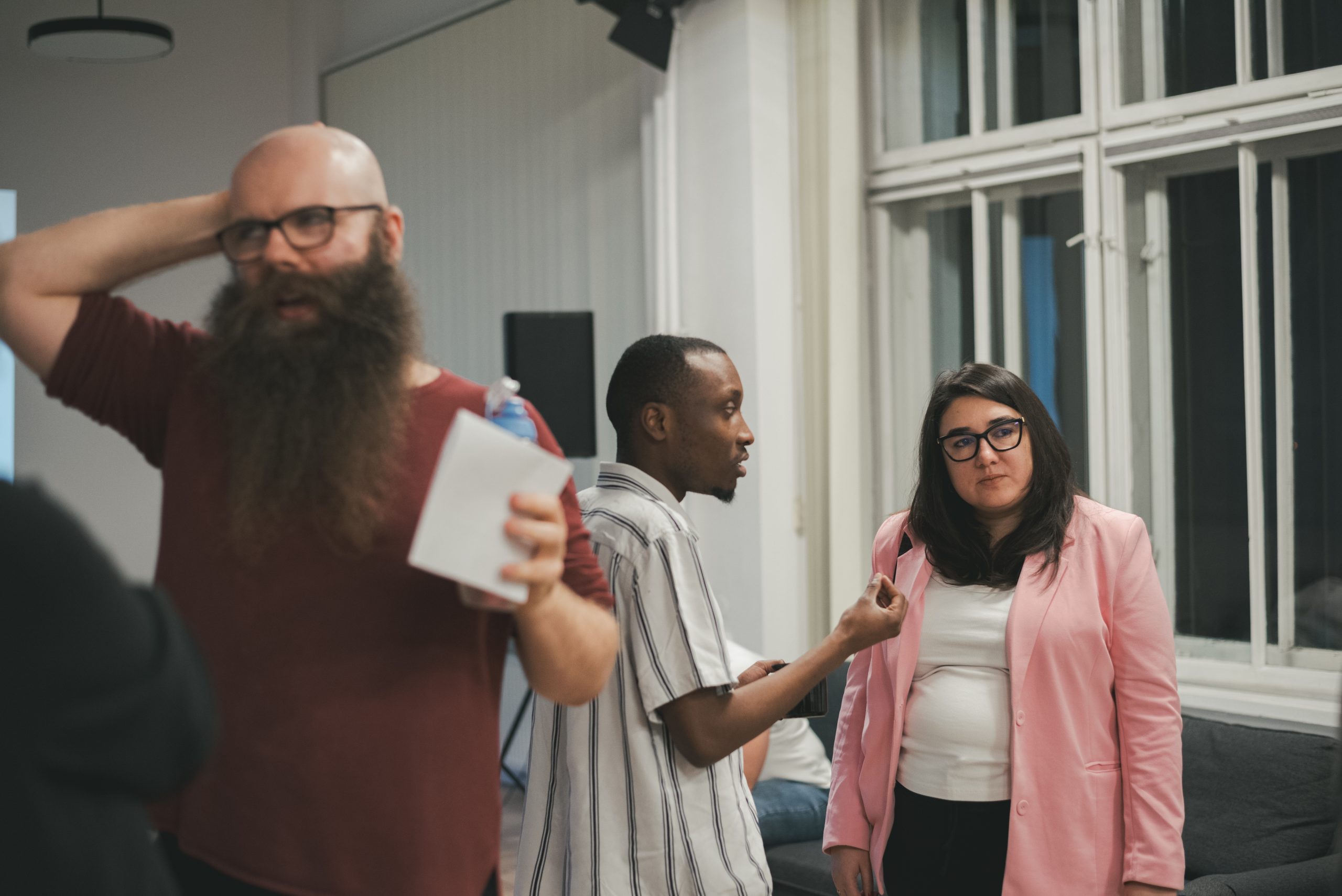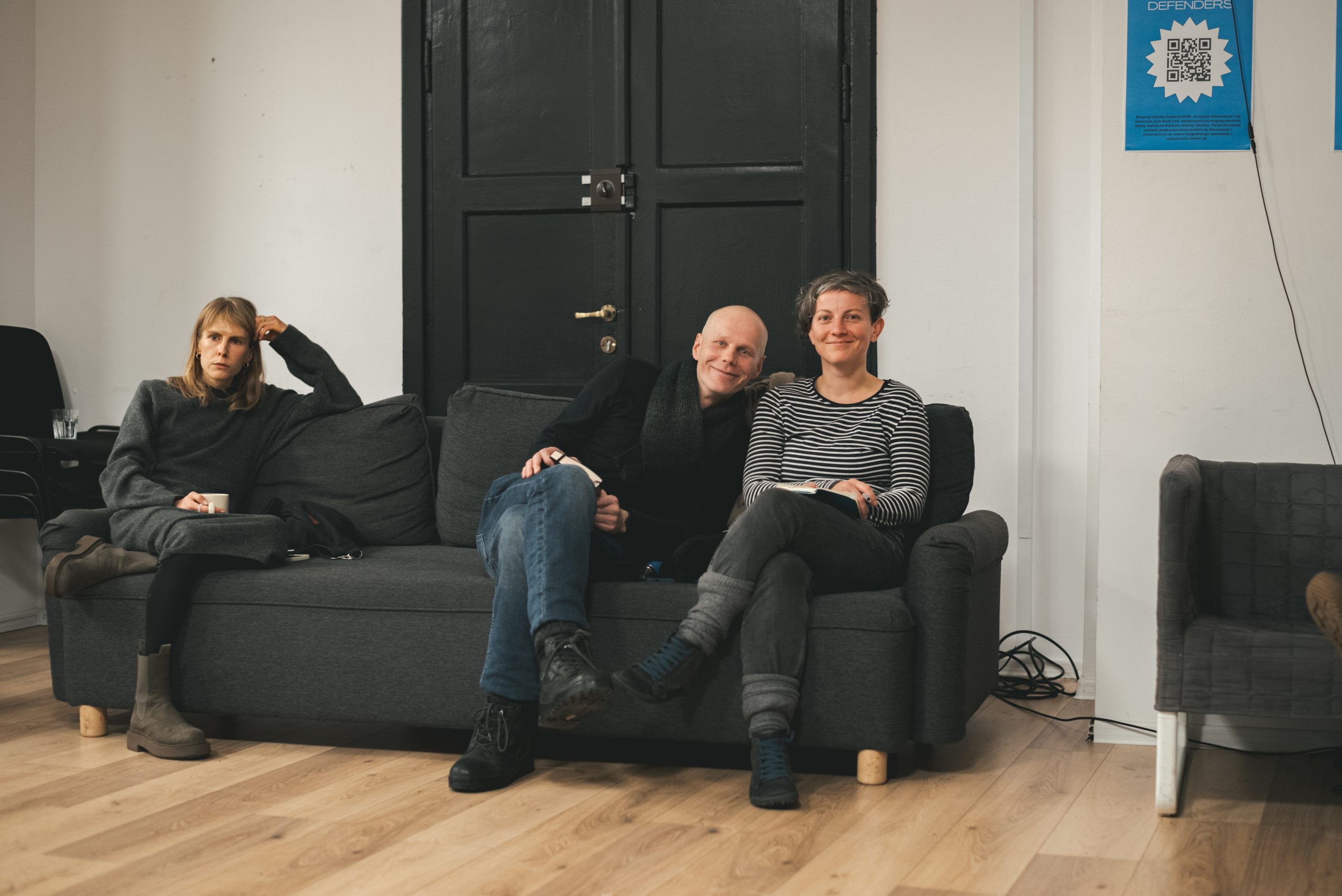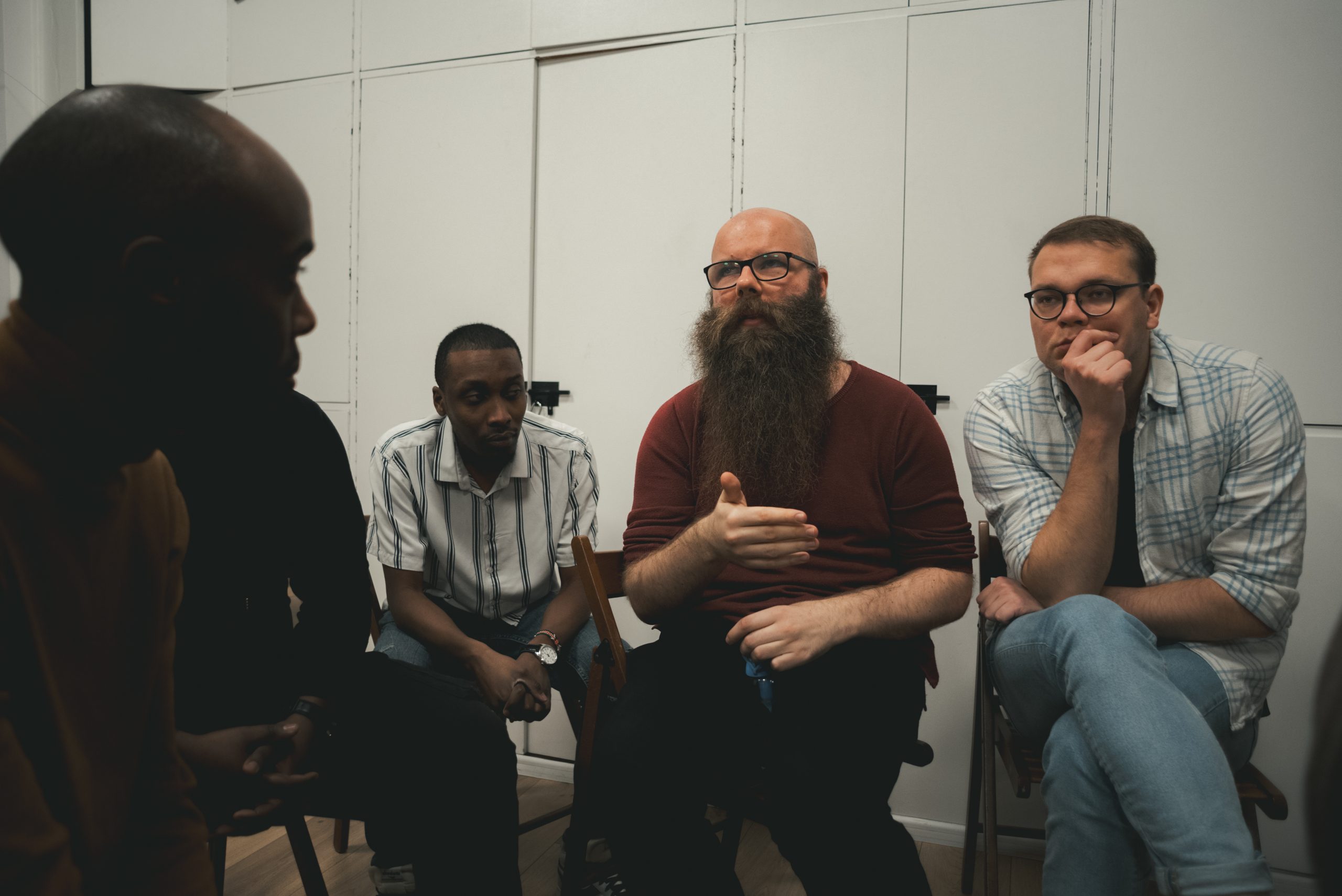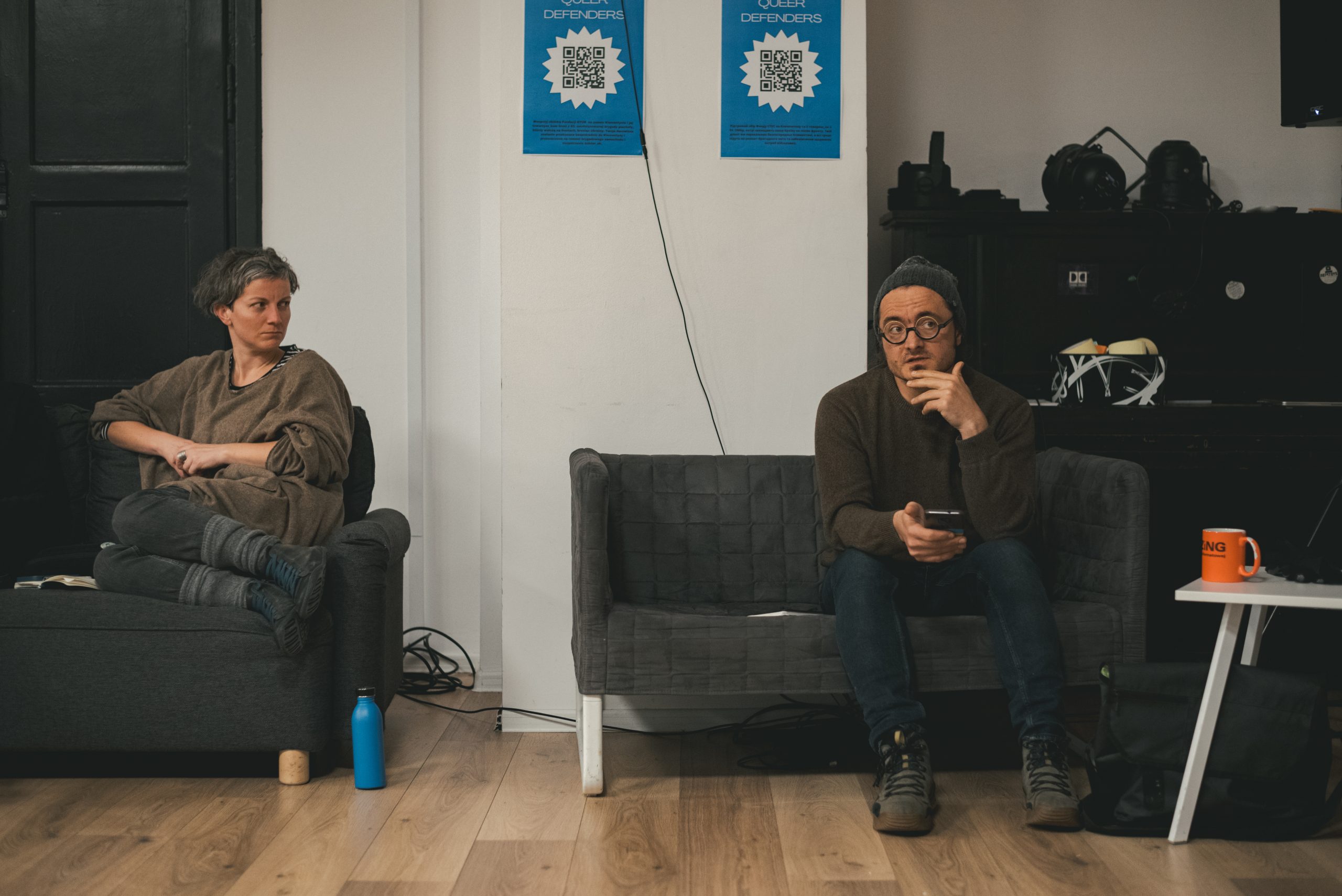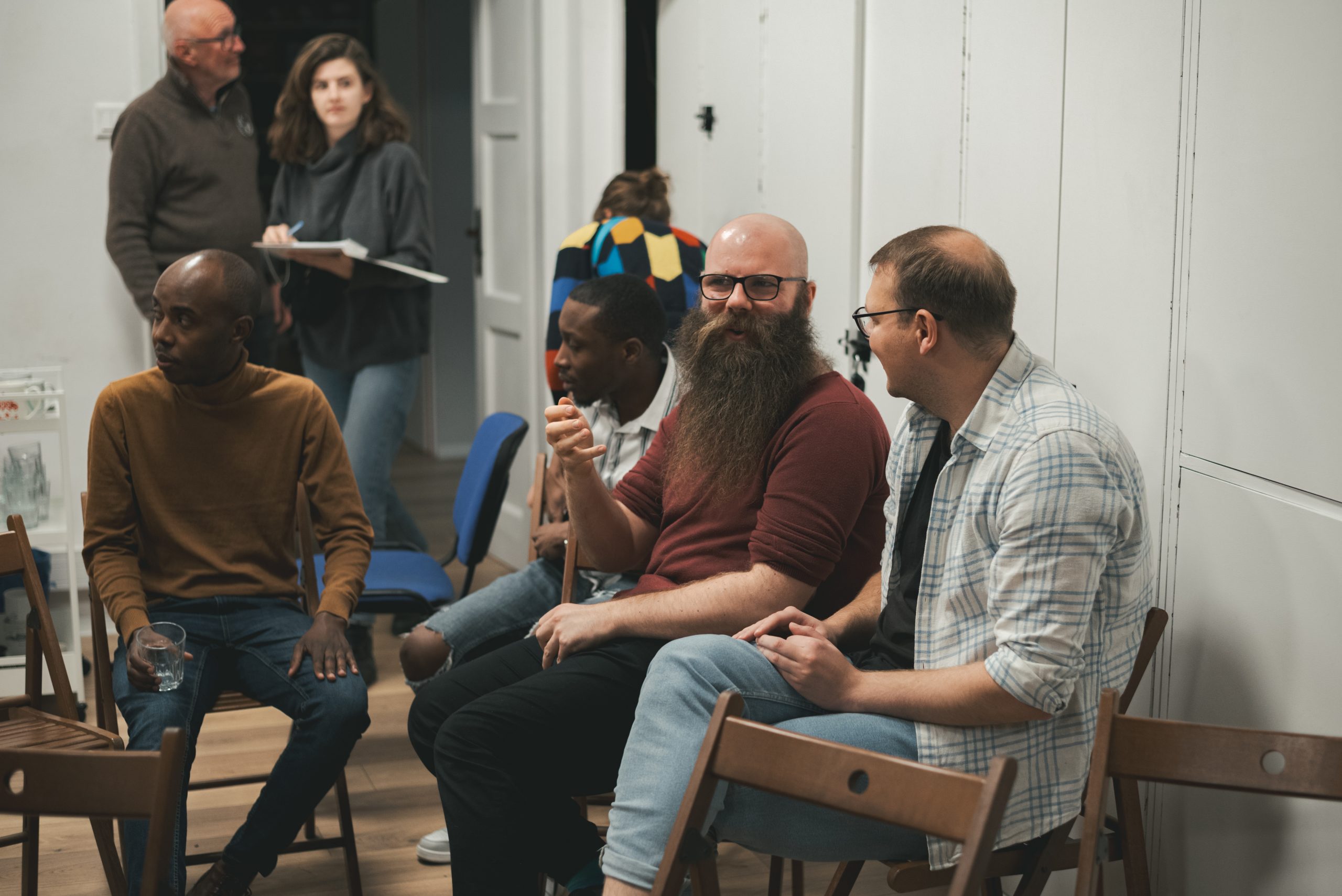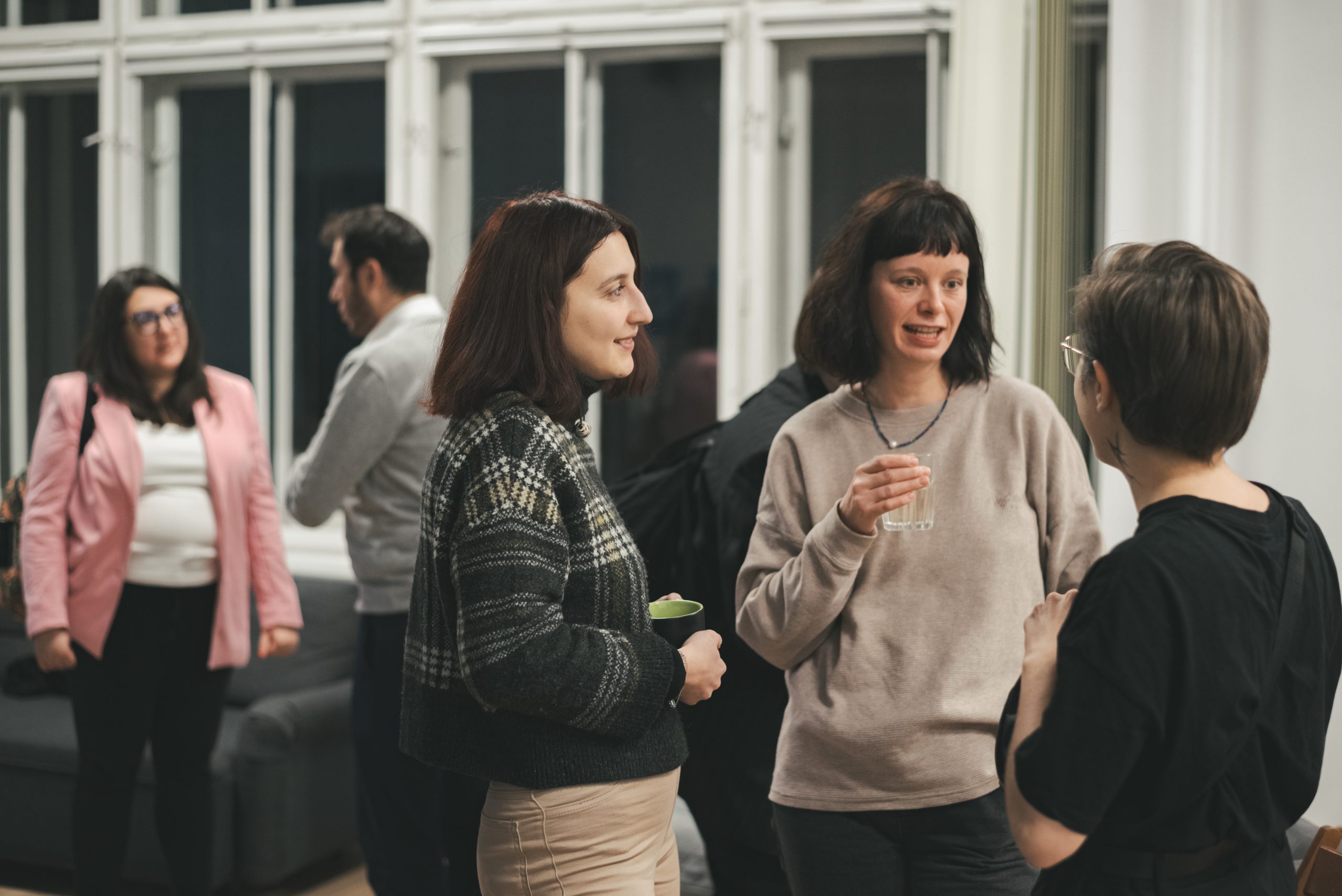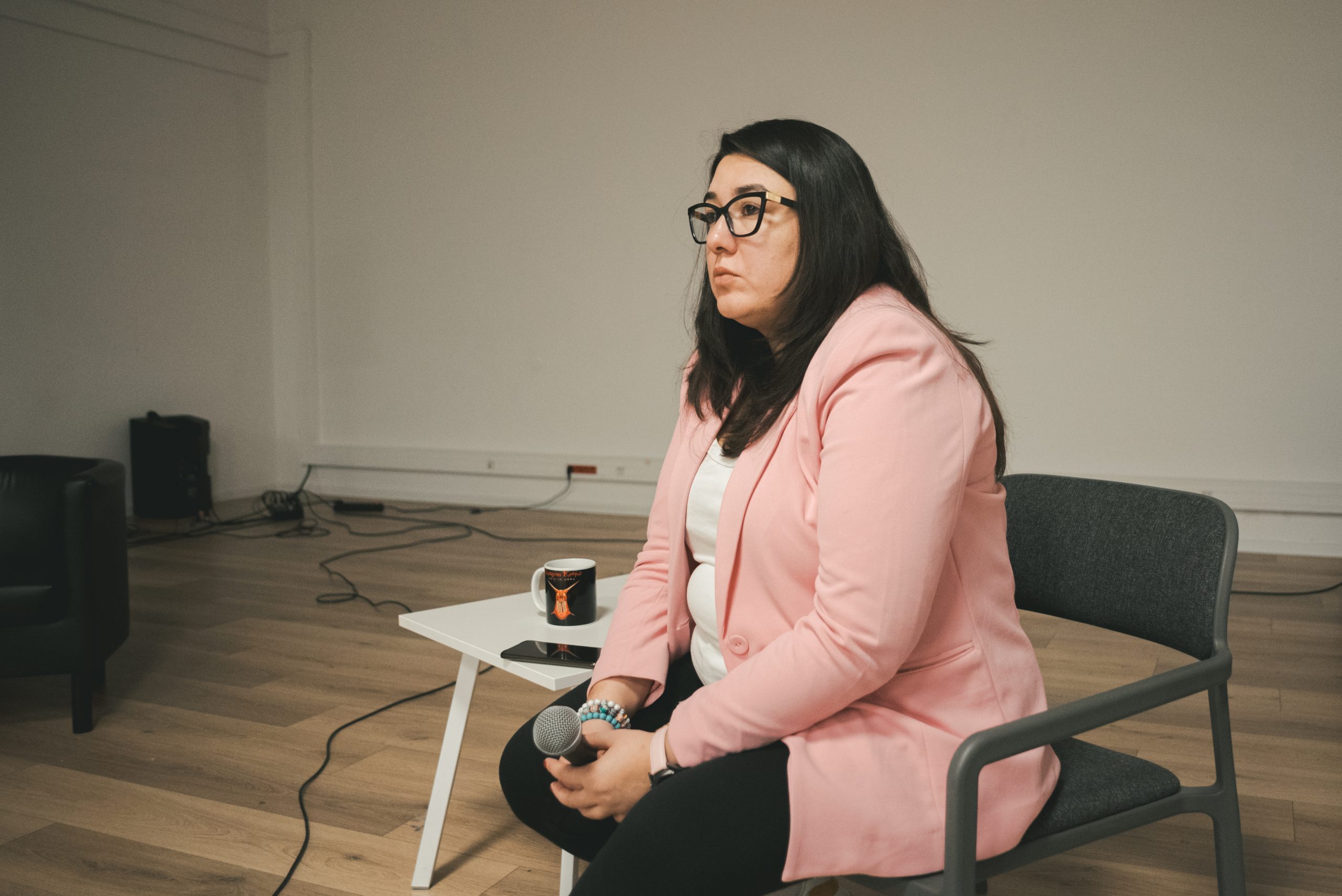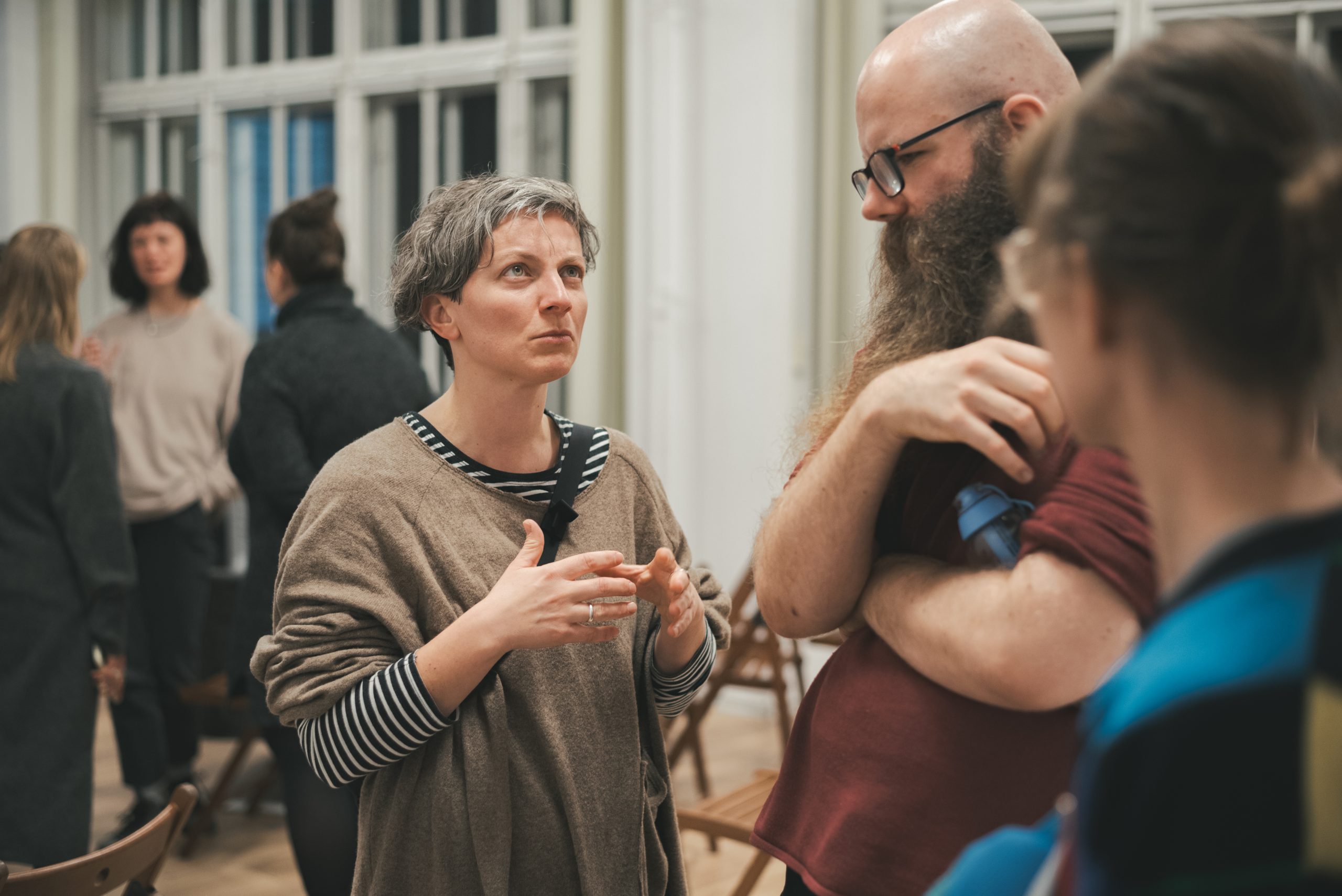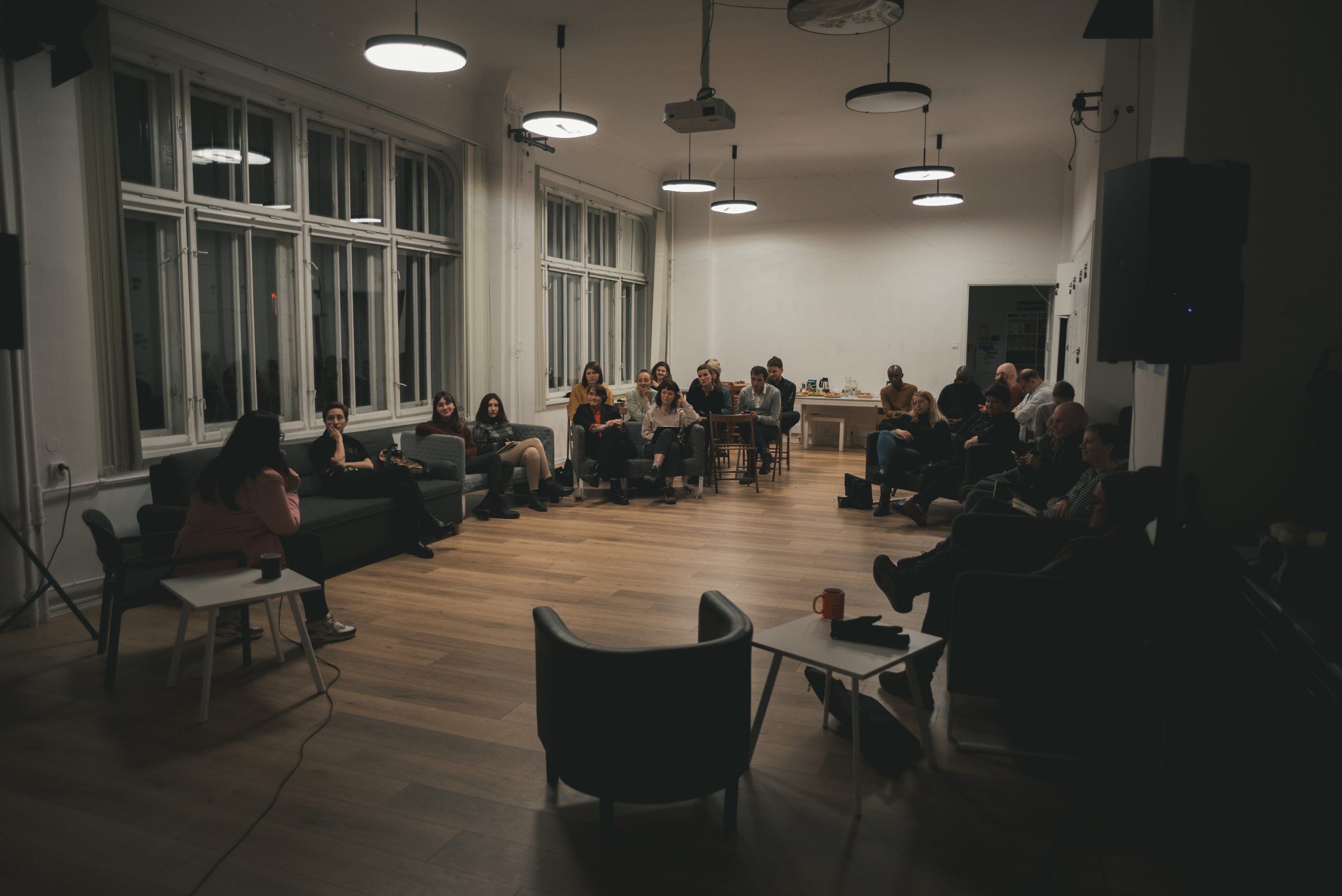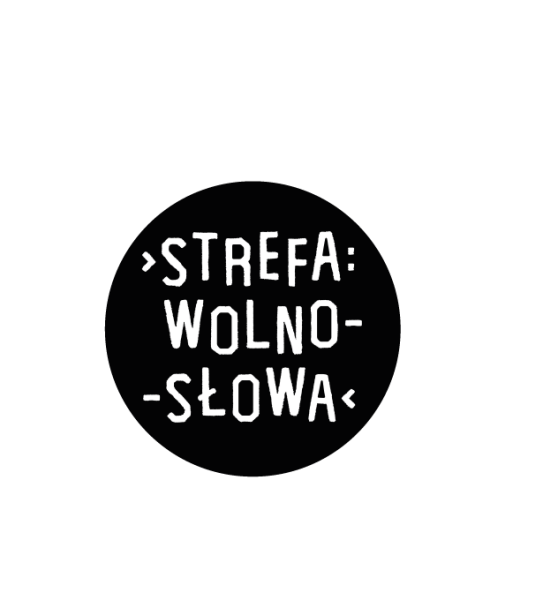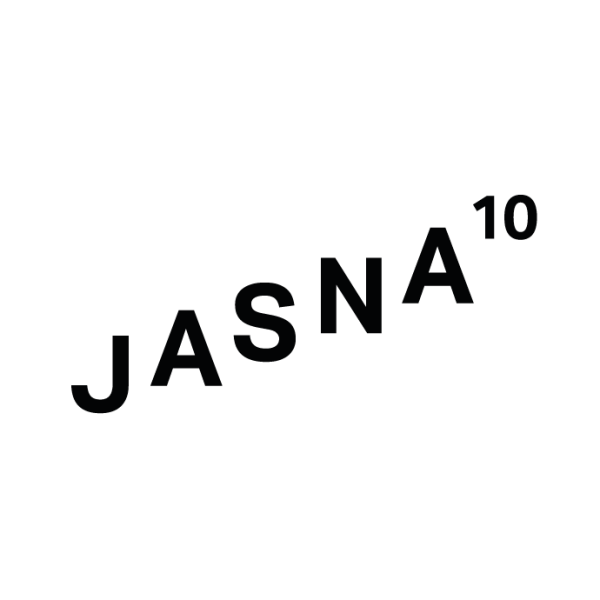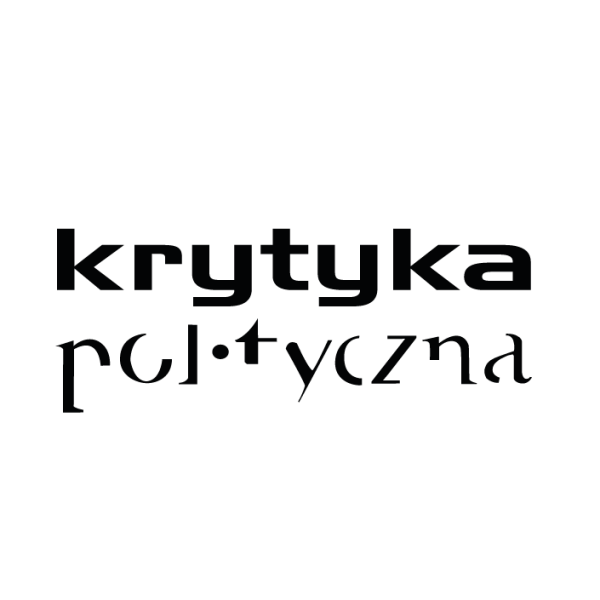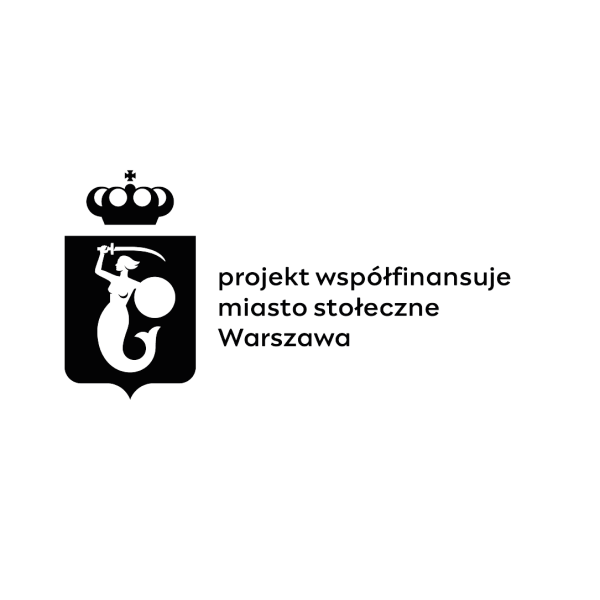𝐌𝐄𝐄𝐓𝐈𝐍𝐆 1: March 9-10, 2024
Saturday, March 9
11:00 AM – 2:00 PM Strefa WolnoSłowa’s School on Migration 2024: Inspirations and Working Methods
We will kick off the first meeting with a workshop presenting the program and objectives of the Migration School 2024, aimed at mutual acquaintance of participants and their previous experiences. Simultaneously, we will introduce the activities and working methods of Strefa WolnoSłowa, creating a space for discussion on the role of artists, animators, and activists in strengthening communities vulnerable to exclusion. Together, we will reflect on how art can build a space for meeting and intercultural community and its impact on those directly involved in artistic activities in their community. We will exchange examples of best practices in this area and inspirations for action in the coming months of the School.
𝐅𝐚𝐜𝐢𝐥𝐢𝐭𝐚𝐭𝐨𝐫:
Alicja Borkowska – Founder and co-creator of Strefa WolnoSłowa, director, cultural animator, graduate of the Theatre Knowledge Department at the Aleksander Zelwerowicz National Academy of Dramatic Art in Warsaw, and the Polish School of Reportage. She studied at the DAMS department at the University of Bologna, where she collaborated for many years with Teatro dell’Argine. She directs performances, conducts theater workshops for children and adults, and, for years, within Strefa WolnoSłowa’s activities, she has implemented intercultural performances, workshops, and theatrical activities.
3:00 PM – 6:00 PM Beyond Panic. The Others of the Climate Crisis
The workshop aims to analyze from various perspectives the complex relationship between mobility and climate change. Through the analysis of selected existing cultural, social, and research projects, the session will be an opportunity to question today’s narratives about climate migrations. Through a participatory approach and sharing useful tools, we will explore current possibilities for social activism related to migration and climate change.
𝐅𝐚𝐜𝐢𝐥𝐢𝐭𝐚𝐭𝐨𝐫𝐬: Stefania Peca and Pierluigi Musaro, University of Bologna / Reimagining Mobilities
Reimagining Mobilities is a collective project that examines tensions and contradictions between policies, practices, and narratives related to climate justice and various mobility systems. Through creative research practices and actions starting from recognizing their own privileged position, the collective aims to share strategies and tools to combat injustice and social exclusion.
Sunday, March 10
11:00 AM – 6:00 PM Artistic and Social Work in Intergenerational Multicultural Groups. Adapting Tools and Methods to Action Contexts.
How to tell the stories of individuals on the move and create meeting spaces for groups with diverse life experiences, cultural backgrounds, and ages? The workshop will introduce the method of Pietro Floridia and Sara Pour’s years-long work on scripts and scenographies for performative events involving multicultural and intergenerational communities. These projects have been realized in various locations, including Italy, Morocco, Palestine, Iran, Brazil, and on the borders of Europe. The facilitators will guide participants in discovering techniques to transform topics important to participants into characters and stories that can embody them.
𝐅𝐚𝐜𝐢𝐥𝐢𝐭𝐚𝐭𝐨𝐫𝐬: Pietro Floridia and Sara Pour / Cantieri Meticci
Pietro Floridia – Actor, director, and writer. In 1994, he founded Teatro dell’Argine in Bologna, where he served as artistic director for many years. Several years later, together with 30 performers from 14 countries currently residing in Bologna, he created the Cantieri Meticci group and the MET theater and cultural center. For years, he has worked with multicultural groups, migrants, refugees, and asylum seekers in Italy. He creates performances and interactive theatrical events involving residents where he works. He has worked in Germany, France, Sweden, Morocco, Palestine, Brazil, Bolivia, Iran, among other places.
Sara Pour – Visual artist, illustrator, and graphic designer. Originally from Iran, she is a graduate of the Academy of Fine Arts in Bologna. She collaborates with Cantieri Meticci, creating scenography and props for performances, as well as the graphic design for projects. She has conducted visual arts workshops for children and youth, working in refugee centers. She undertakes illustrative projects and creates large-format puppets, often as part of workshops with communities.
𝐌𝐄𝐄𝐓𝐈𝐍𝐆 2: April 13-14, 2024
Saturday, April 13
11:00 AM – 2:00 PM Pracownia / Studio, vol. 1
A workshop focused on preparing and consulting the implementation of projects and initiatives by School participants. It provides a space for the exchange of knowledge and strengthening in areas such as research, planning, preparation, and description of activities, shaping and describing one’s creative practice, methods, and tools for participatory work with migrant communities, building relationships and communal creative processes, discussing and collectively finding solutions to challenges encountered in project work, and building public presentation skills.
𝐅𝐚𝐜𝐢𝐥𝐢𝐭𝐚𝐭𝐨𝐫𝐬:
Alicja Borkowska
Olga Klip – Curator, cultural manager. Her practice focuses on reintegrating art with everyday life, overcoming elitism in art institutions, and empowering individuals working with people outside the high art audience. She works with underrepresented artists, especially in situations of cultural exclusion that may result from the center-periphery dichotomy or limitations practiced by cultural institutions.
3:00 PM – 6:00 PM Exploring Countries of Origin, vol. 1
A seminar on the most critical issues and events in selected countries of origin of people migrating to Europe. The sessions will focus on providing insight into the socio-economic situation in selected regions of the world, offering an opportunity to deepen knowledge about current global conflicts and phenomena influencing migrations.
𝐒𝐩𝐞𝐚𝐤𝐞𝐫:
Piotr Balcerowicz – Philosopher, cultural studies scholar, orientalist, professor. He specializes in political philosophy, Indian philosophy, non-European cultures, and human rights. He has taught international relations and conflict management at various Polish (University of Warsaw, SWPS University) and international institutions (University of Munich, Ashoka University in India), as well as visiting professorships (University of Hamburg, University of the Punjab in Pakistan). Founder and president of associations: School for Peace (2002–2006) and Education for Peace (2006–2014). Since 2002, he has been involved in building educational institutions (schools, university institutes) and training human rights observers and independent journalists in war-affected regions (Afghanistan, Pakistan, Myanmar/Burma, South Sudan, Burkina Faso, Uganda). His publications include over 100 articles and about 30 books as an author, co-author, or editor. Three recent monographs focus on human rights in South Asia: “Kashmir in India and Pakistan policies” (Routledge, 2022), “Human Rights Violations in Kashmir” (Routledge, 2022), and “Law and Conflict Resolution in Kashmir” (Routledge, 2022). More information:
http://balcerowicz.eu/Sunday, April 14
11:00 AM – 2:00 PM Migration Policy of Poland and the European Union.
The meeting will begin with a brief history of migration, passports, and visas, leading to an exploration of the current shape of the international system protecting the rights of migrating individuals. Together, we will ponder whether the 1951 definition of “refugee” aligns with modern times. We’ll discuss the EU’s asylum and migration policy, with particular emphasis on the situation at European borders and in guarded facilities. We will delve into the currently debated New Pact on Asylum and Migration within the EU. The facilitator will also introduce the basic provisions of Polish migration law. The second part of the meeting will consist of workshops where participants will have the opportunity to closely examine individual migration stories.
𝐅𝐚𝐜𝐢𝐥𝐢𝐭𝐚𝐭𝐨𝐫:
Marta Górczyńska – Legal expert specializing in the protection of the rights of migrating individuals. She is the coordinator of the Migration Department at the Helsinki Foundation for Human Rights and a doctoral student in legal sciences at the University of Warsaw. She monitors human rights compliance at borders and in detention centers for migrants. She has worked as a national expert for UNHCR and conducts workshops and training on human rights protection. She is the author and co-author of reports, publications, and handbooks on refugee and migration issues.
3:00 PM – 6:00 PM Exploring Countries of Origin, vol. 2
A seminar on the most critical issues and events in selected countries of origin of people migrating to Europe. The sessions will focus on providing insight into the socio-economic situation in selected regions of the world, offering an opportunity to deepen knowledge about current global conflicts and phenomena influencing migrations.
𝐒𝐩𝐞𝐚𝐤𝐞𝐫
Piotr Balcerowicz
𝐌𝐄𝐄𝐓𝐈𝐍𝐆 3: May 11 and 12, 2024
Saturday, May 11
11:00 AM – 2:00 PM The Border, Detention Centers, and the Reality of Asylum Seekers in Poland.
This workshop provides an opportunity to discuss the current situation at the Polish-Belarusian border, advocacy efforts, and activism related to the ongoing humanitarian crisis. During the meeting, in light of recent events, we will trace the current path that asylum seekers in Poland must navigate. We will talk about the situation in open and closed centers for foreigners and explore possible forms of assistance for individuals both at the border and in centers.
𝐅𝐚𝐜𝐢𝐥𝐢𝐭𝐚𝐭𝐨𝐫:
Aleksandra Chrzanowska – Member of the board of the Association for Legal Intervention, where she has worked for years as an intercultural advisor and project coordinator. She holds a degree in cultural studies from the University of Warsaw (master’s thesis on the cultural identity of Chechen refugees in Poland). She worked as a translator for a psychologist at the Polish branch of Doctors Without Borders. Author of publications on refugee integration and multiculturalism. Laureate of the 7th edition (2015) of the J. Zimowski Award and the Olga Kersten-Matwin Award (2022). Since 2021, an activist with the Border Group, actively involved in activities on the Polish-Belarusian border.
3:00 PM – 6:00 PM Exploring Countries of Origin, vol. 3
A seminar on the most critical issues and events in selected countries of origin of people migrating to Europe. The sessions will focus on providing insight into the socio-economic situation in selected regions of the world, offering an opportunity to deepen knowledge about current global conflicts and phenomena influencing migrations.
𝐒𝐩𝐞𝐚𝐤𝐞𝐫
Piotr Balcerowicz
Sunday, May 12
11:00 AM – 2:00 PM Community of Experiences and Internal Hierarchies
Internal tensions exist in every refugee/migrant community (views, dependencies, and experiences prevalent in the country of origin migrate with us). Using the example of Ukrainians living in Poland, we will examine how the diversity of pain experiences and systemic difficulties affects the sense of community and the valuation of individuals (the creation of internal hierarchies). We will explore the “criteria” for divisions and try to understand the internal differences between Ukrainians who lived in Poland before the full-scale war and those who arrived after February 24. Those who decide to return and those who want to stay in Poland. Those who arrived in February 2022 and those who came a year later. We will also delve into how loneliness, guilt, and repression play into all of this.
Facilitator:
Nina Boichenko – Researcher at the Center for Migration Research at the University of Warsaw and a PhD student in Interdisciplinary Humanities: Borderlands, National Minorities, Migrations from a Sociolinguistic Perspective at the Polish Academy of Sciences. She is a co-creator of the inter-university project Researchers at the Border (Badacze i Badaczki na Granicy – BBnG), which focuses on the humanitarian crisis on the Polish-Belarusian border. She is passionate about educational and popularization activities. Nina’s research interests include communication methods and language constructs among actors in migration processes.
𝐌𝐄𝐄𝐓𝐈𝐍𝐆 4: June 8 and 9, 2024
Saturday, June 8
11:00 AM – 2:00 PM Pracownia / Studio, vol. 2
A workshop focused on preparing and consulting the implementation of projects and initiatives by the participants of the School. This will provide a space for the exchange of knowledge and reinforcement in areas such as research, planning, preparation, and description of activities, shaping and describing one’s creative practice, methods and tools for participatory work with migrant communities, building relationships, and communal creative processes. Discussions will include addressing and finding solutions to challenges encountered in project work, as well as building public presentation skills.
𝐅𝐚𝐜𝐢𝐥𝐢𝐭𝐚𝐭𝐨𝐫𝐬:
Alicja Borkowska and Olga Klip
3:00 PM – 6:00 PM Migration of Images
During the workshops, methods of creating visual narratives in practice will be explored. The focus will be on how images can represent the experience and phenomenon of migration, aiding in constructing the memory and identity of refugees. Creating visual narratives can be a tool for both empathy and managing anger and hatred. By analyzing various visual messages – from visual arts, mass media, and film – the workshop will examine how they affect emotions, construct the external and internal world of migrants, and create a sense of otherness and conflict.
𝐅𝐚𝐜𝐢𝐥𝐢𝐭𝐚𝐭𝐨𝐫:
Paweł Mościcki – Philosopher, essayist, and translator working at the Institute of Literary Research of the Polish Academy of Sciences in Warsaw. Member of the editorial board of the quarterly “Widok. Teorie i praktyki kultury wizualnej” (View: Theories and Practices of Visual Culture). Author of several books, including “Foto-konstelacje. Wokół Marka Piaseckiego” (2016) and “Lekcje futbolu” (2019). He is also the author of the visual atlas dedicated to migrations (
refugeeatlas.com), runs a blog at
pawelmoscicki.net, and hosts the podcast “Inny Świat” (A Different World).
Sunday, June 9
11:00 AM – 2:00 PM Intersectionality of Migration – What We See and What We Don’t Notice.
The intersectional perspective allows a closer examination of the situation of migrants. It provides an opportunity to see the full picture of the reality faced by those crossing borders, the problems they encounter, and the challenges they face. Do we correctly interpret their intentions? Can appearances speak for reality? How can we identify who is who on migration paths? What exactly is intersectionality? During the workshop, we will answer these questions and consider how to support individuals with complex identities who are often exposed to multiple discrimination. We will learn about the intersectional approach, which will raise awareness of the multidimensionality and complexity of human nature, serving as an indispensable tool for working in various environments.
𝐅𝐚𝐜𝐢𝐥𝐢𝐭𝐚𝐭𝐨𝐫:
Agnieszka Caban – Cultural Studies scholar, PhD student at the University of Warsaw in the Doctoral School of Cultural and Religious Studies, researcher of cultures of national and ethnic minorities, specialist in multiculturalism. Lecturer and trainer in intercultural communication, anti-discrimination, self-advocacy, etc. Social activist and human rights defender. Recipient of the Helena Radlińska Award for social animators (special distinction in 2014). Author of numerous articles, reports, editor of books and magazines.
3:00 PM – 6:00 PM Figures, Narratives, and Representations of Migration in Media and Public Debate.
During the session, we will learn to decode recurring patterns in media and public representations of migration and refuge. We will examine the language and metaphors used to describe migration, as well as the formal techniques and ways of framing topics related to mobility. Ethical issues related to the creation and consumption of images of “others” will be discussed, considering the role of the audience in this context. We will also explore how to describe refugee and migration experiences in a way that cares more about the subjectivity of migrants and refugees, through the use of participatory tools and other forms of collaboration.
𝐅𝐚𝐜𝐢𝐥𝐢𝐭𝐚𝐭𝐨𝐫:
Dominika Blachnicka-Ciacek – Visual sociologist and assistant professor at the Faculty of Sociology, University of Warsaw. Her research and visual practice focus on the role of memory, place, political narratives, and conflict in shaping belonging and exclusion among refugee and immigrant communities.
𝐌𝐄𝐄𝐓𝐈𝐍𝐆 5: September 21 and 22, 2024
Saturday, September 21
11:00 AM – 2:00 PM Pracownia / Studio, vol. 3
A workshop focused on preparing and consulting the implementation of projects and initiatives by the participants of the School. A space for exchanging knowledge and strengthening skills in areas such as research, planning, preparation, and description of activities, shaping and describing one’s creative practice, methods, and tools for participatory work with migrant communities, building relationships, and communal creative processes. Facilitated by:
𝐅𝐚𝐜𝐢𝐥𝐢𝐭𝐚𝐭𝐨𝐫𝐬:
Alicja Borkowska and Olga Klip
3:00 PM – 6:00 PM Investigating human rights violations: methods and tools of work of Forensic Architecture
Forensic Architecture (FA) is a research agency, based at Goldsmiths, University of London, investigating human rights violations including violence committed by states, police forces, militaries, and corporations. During the meeting, we will get to know the working methods of FA with a special focus on the investigation of fire in the Moria Refugee Camp. In the late hours of 8 September 2020, large fires broke out at the migrant camp of Moria, located on the frontier island of Lesvos, Greece. The fires smoldered over several days, displacing thousands of people and reducing the epicenter of the EU’s carceral archipelago to ashes. The overcrowded camp, first established in 2013, was host to more than 13,000 people at the time and was notorious for its precarious and unsafe living conditions—conditions manufactured and maintained for years by Greek and EU policies. Only a few days after the fire, and before the local Fire Service had concluded their investigation, police arrested six young asylum seekers, five of them minors, accusing them of starting the fire. They later became known as the ‘Moria 6’. During the workshop session, we will discover how FA sourced and examined hundreds of videos, images, testimonies, and official reports, and conducted a detailed spatio-temporal reconstruction of the spread of the fire through the camp and how this analysis reveals significant inconsistencies in the testimony of the key witness and casts further doubt on the evidence upon which the judgment of the young asylum seekers was based.
𝐅𝐚𝐜𝐢𝐥𝐢𝐭𝐚𝐭𝐨𝐫:
Dimitra Andritsou – is an architect and researcher. She has been working with Forensic Architecture (FA) since 2019, and is currently a senior researcher at FA’s Berlin based sister agency, Forensis, where she provides oversight across the organisation’s research programme, as well as over the development of new evidentiary and investigative techniques. Dimitra graduated in 2017 from the School of Architecture of the Aristotle University of Thessaloniki, Greece, and in 2019 she completed with distinction the MA in Research Architecture at Goldsmiths, University of London. Her work has been exhibited at the Whitworth, Haus der Kulturen der Welt (HKW), ar/ge kunst, Z33, Louisiana Museum of Modern Art, and Museum der Moderne Salzburg, amongst others.
Sunday, September 22
11.00-14.00 Art of Conversation and Working with Stories
This workshop offers a direct experience of creative work in a multicultural group and a reflection on conversation and listening to stories. The basis for the work will be verbal and movement improvisations enabling creative understanding, as well as transforming real stories and biographical fragments into performatively interesting materials. The workshop will explore questions about our place in space and in the world, reaching into memories, memories of events, movements, and actions. It will utilize workshop methods with multicultural groups from Strefa WolnoSłowa.
𝐅𝐚𝐜𝐢𝐥𝐢𝐭𝐚𝐭𝐨𝐫:
Alicja Borkowska
𝐌𝐄𝐄𝐓𝐈𝐍𝐆 6: October 12 and 13, 2024
The detailed program for the final meeting of the School on Migration will be prepared jointly with the group during the PRACOWNIA / STUDIO workshops. This concluding event will be an opportunity for the public presentation of projects and processes that participants have been working on for the past months, as well as for the evaluation of the entire process.

